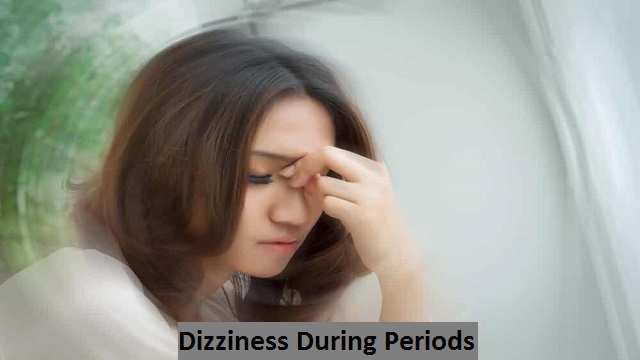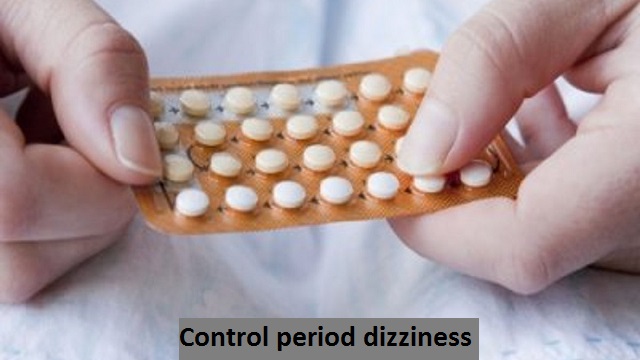
Dizziness During Periods: Causes and Effects.
One typical symptom that many women encounter is dizziness during or prior to periods. Even though we already experience unpleasant symptoms, this is one that can really make you feel unsteady, lightheaded, and generally out of it. This can be a normal symptom for the majority of women, but it can also be an indication of a more serious condition for some.
Why Do I Get Lightheaded During My Period?
For the majority of people, feeling a little lightheaded during or just before your period is normal. Here are a few causes of dizziness that you might encounter during your cycle (we’ll elaborate on each one).
- Anemia (due to blood loss and/or clots).
- Cramps (painful and inflammatory).
- dehydration (caused by hormones or routine activity).
- Hypoglycemia (change in blood sugar levels).
- Migraines (associated with periods).
- Chronic PMS (PMDD).
- hormone changes brought on by prostaglandins.
- Shock from Toxic Material.
Anemia and lightheadedness while on period.
You may develop anemia if your body loses blood or if there aren’t enough healthy red blood cells to distribute oxygen throughout the body. More specifically, having frequent periods can contribute to iron-deficiency anemia, which is most common in women.
Before your period or even during it, anemia can make you feel lightheaded. You might want to talk to your doctor about taking an iron supplement during this time of the month or about regularly taking a low-dose multivitamin to prevent anemia altogether.
Cramps:
Women can get cramps for different reasons; some do, some do not. Cramps can make it difficult for us to perform our daily tasks and can even make us feel lightheaded during or before a period. In order to help the uterine lining shed, your body’s normal uterine contractions, or cramps, take place.
With regular vitamin D supplementation, the pain associated with menstrual cramps may be reduced. It was discovered that the prevalence of PMS decreased from 14 point 9 percent to just 4 point 8 percent in a study of 897 girls who received high-dose vitamin D supplements. Backaches, emotional instability (propensity to cry easily), and the severity of dysmenorrhea’s pain were all associated with vitamin D supplementation.
Dizziness and dehydration during the period.
Even without being on your period, dehydration can make anyone feel lightheaded. Our bodies may need more hydration and water to perform these hormonal functions when our hormones fluctuate, particularly around our monthly cycle.
On your period, if you are dehydrated or low on water, you may feel lightheaded and dizzy. Your body will thank you for staying hydrated throughout the day every day, so do your best to do so.
Hypoglycemia:
The way hormones work directly influences blood sugar levels. Low blood sugar (hypoglycemia) can be caused by hormonal changes during menstruation. You may experience dizziness before your period or during it if you have low blood sugar levels as a result of estrogen altering the body’s sensitivity to insulin.
In comparison to people without diabetes, those who have diabetes are more likely to experience hypoglycemia around their monthly cycle.
Headaches and lightheadedness while on period.
The same hormonal changes, particularly those related to estrogen, that we discussed a few paragraphs ago when discussing dehydration can also lead to period-related migraines before, during, and after your period.
These migraines are frequently described as throbbing attacks that, in addition to pain, can occasionally result in dizziness. If it helps, nearly 60% of women experience period-related migraines, so you’re definitely not alone on this one, if that gives you some comfort.
Taking two capsules of curcumin—the active ingredient in turmeric capsules—on a regular basis before, during, and after periods can help with the period-related pain that frequently causes dizziness.
Researchers studied this kind of supplementation in a clinical trial and discovered that PMS symptoms decreased as a result of the anti-inflammatory properties of turmeric, which also reduced inflammation that contributes to period-related pain and migraine.
PMDD:
Premenstrual dysphoric disorder (PMDD), which is caused when PMS symptoms get really bad, is where our cycles can really mess with our daily lives and ability to function. In addition to making you feel lightheaded during your period, PMDD can also lead to severe cramps, energy slumps, clots, and other undesirable side effects.
While there is still no known cause for PMDD and little knowledge about who gets it and who doesn’t, or even the likelihood of getting it, the majority of the arrows point to the body’s hormonal changes around this time. In the event that you believe you may have PMDD, we strongly advise speaking with your doctor to learn how you can treat the vertigo and other symptoms.
Prostaglandins and Headaches During Menstruation.
Prostaglandins are hormones that play numerous regular roles in the human body, including regulating your menstrual cycle. Sometimes during our cycle, we produce too much of these hormones, which can cause more mild to severe period symptoms like dizziness on your period, cramps, and migraines. Overproduction of these hormones can actually cause blood vessels to constrict, which can use up more water and result in dehydration, the other symptom we’ve discussed.
According to a study that included more than 70 patients, supplementing with krill oil actually lessens the emotional PMS symptoms and is much more effective than supplementing with fish oil to lessen dysmenorrhea.

The syndrome of toxic shock.
Only the back of a box of tampons or a joke among your high school girlfriends are likely places where you have read or heard about TSS. Toxic shock syndrome (TSS) is a very serious illness, though. The good news is that it is relatively uncommon, but TSS has become a little more common as a result of the development of super-absorbent tampons that you can leave in for longer.
We advise women to become familiar with TSS and to seek immediate medical attention if they experience any TSS symptoms, such as sudden fever, lightheadedness or fainting, high fever, sore throat, eye inflammation, or other symptoms.
Treatment for Headache During Period:
Depending on the signs and processes that your body is going through during your cycle, you may need to seek treatment for persistent and crippling dizziness during or before your period. Keeping hydrated, thinking about non-steroidal anti-inflammatory drugs (NSAIDs) like ibuprofen, and monitoring sugar intake can all help with dizziness and PMS symptoms, though each of the causes listed above may call for a different course of treatment or care.
On the other hand, ailments like PMDD, anemia, and TSS do necessitate medical treatment and attention. Our bodies’ regular functions can be greatly aided by a diet high in nutrients, protein, functional carbs, and quality fats, as well as by regular exercise, sleep schedules, and the right supplements.
In conclusion, dizziness during period.
In conclusion, the majority of PMS symptoms are manageable. To help you cope with your monthly cycle, we advise consulting with your medical team if you are one of the few women who experience moderate to severe, even incapacitating symptoms. While dizziness can occur for a variety of reasons, including your period or just before it, it is common and typically only lasts a short time.
However, if your symptoms persist or worsen, they could indicate an underlying health issue. Overall, remember to practice self-compassion and patience during this time of the month. While our bosses at work or some men might not understand, your health is absolutely deserving of being your top priority, and self care is essential.

How to control period dizziness : Why it occurs.
Periods have a lot of power. They can be a powerful inner guidance system and an effective healing tool if lived not through cultural stigma but rather through the magic of cycle awareness and the power of the Moon.
But because most of us learned about our bodies from a typically patriarchal perspective on the world, we frequently have to deal with our stigma with each monthly bleeding.
Stretching the muscle of period awareness is a good idea because it will become easier to recognize when something is wrong as we become more familiar with our bodies and what makes us feel good.
For instance, lightheadedness during your period may be a sign of blood or hormone irregularities, so it’s important not to ignore it. Let’s investigate its nature and potential causes!
Is feeling woozy during a period normal?
It depends on the kind of symptom, how severe it is, and how frequently it occurs, just like with many other period side effects. While a little bit of lightheadedness during your period is frequently perfectly normal, if it persists every month or becomes so severe that it is incapacitating, you should research the causes and potential treatments.
It’s crucial to keep an eye out for any additional symptoms, such as fainting, an irregular heartbeat, nausea, trembling, headaches, and momentary vision loss, that appear at the same time as a dizzy spell.
The reasons why you feel lightheaded during your period are:
Anaemia, a typical condition also known as low hemoglobin, is frequently the main cause of lightheadedness. It is defined as a moderate or severe “lack of enough healthy red blood cells to carry adequate oxygen to your body’s tissues,” which can make you feel exhausted and weak.
The brain is extremely sensitive to even the smallest changes in blood oxygen levels, and when concentration drops, it quickly causes dizziness. This is the brain’s way of “sounding the alarm” so you can stop, rest, and start receiving more oxygen again. Menstrual blood loss alone may be enough to cause this reaction if you have a heavy period or have more severe anemia.
Unfortunately, uncomfortable cramps are a regular part of the menstrual cycle and can make you feel lightheaded. Along with dizziness, nausea, fatigue, bloating, vomiting, and diarrhea, dysmenorrhea (severe or incapacitating period cramps) can result from your uterus contracting to shed its lining.
Before your period, you may feel lightheaded.
Premenstrual dysphoric disorder (PMDD) is a severe form of PMS, the causes of which are still unknown, where “normal” PMS symptoms become so incapacitating that they affect your daily activities. You might feel dizzy as a result of it, along with mood swings, trouble sleeping, bloating, breast tenderness, anxiety and irritability, extreme exhaustion, and occasionally extreme sadness. After your period starts, symptoms typically go away in two to three days.
The best ways to handle lightheadedness during your period are:
It’s important to stay hydrated to keep your blood pressure in check, so drink plenty of fluids throughout your period to reduce lightheadedness. Anyone with low blood pressure or who experiences frequent dizziness should always move slowly, especially when rising from a seat, and get plenty of rest.
It’s crucial to consume an iron-rich diet during your period, but it’s also important at all other times. Your best chance of reducing the signs of potential anaemia and managing recurrent fainting spells is to consume foods like meat, fish, broccoli, and kale, or even iron supplements.
Another crucial element is to make sure to eat regularly, as skipping meals can cause fatigue, nausea, and shakiness.
Additionally, you could learn various breathing exercises and techniques that have been shown to relieve menstrual cramp pain, a brief oxygen shortage, and prevent lightheadedness. Last but not least, fresh ginger can be added to your homemade meals or taken as supplements to treat motion sickness and nausea.
It might not be connected to your period.
Yes, but that doesn’t mean that just because you get lightheaded during your period that the two things are related unless it happens frequently. Dizziness can have a wide range of causes, such as motion sickness, balance issues, strokes, Ménière’s disease, and some heart conditions.
Drugs used to treat heart issues, asthma, high blood pressure, ADHD, and other mental health conditions are known to frequently list weakness and dizziness among their side effects. Prescription and over-the-counter medications are another common cause of dizziness.
You may experience dizziness and weakness if you have hypoglycemia, also known as low blood sugar. Although diabetes is frequently diagnosed in those who already have the disease, a drop in insulin levels can actually occur to anyone, at any point during their menstrual cycle.
Read More: Diastasis Recti
Leave a Reply